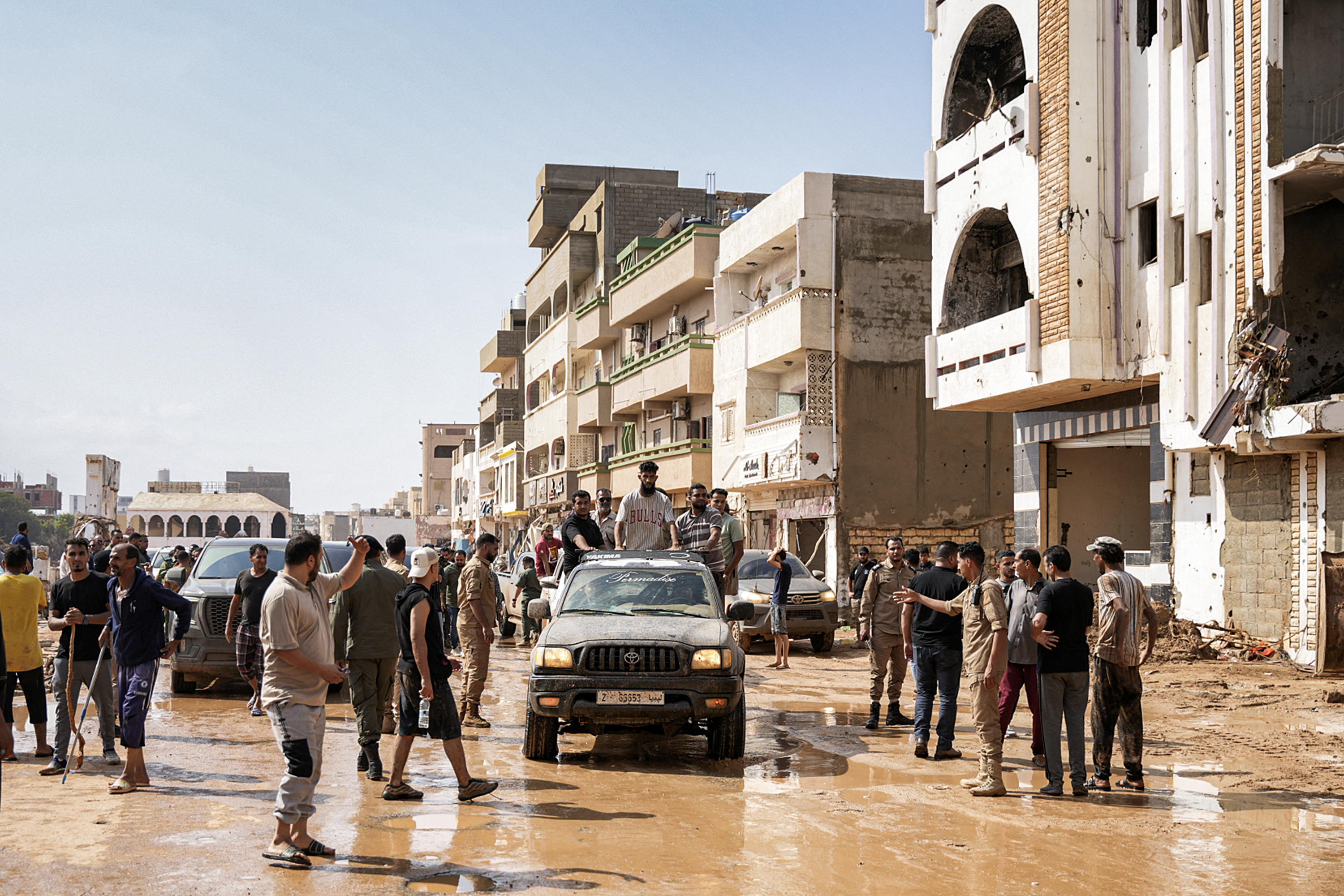
Heavy flooding caused by Storm Daniel has had a devastating effect on eastern Libya, leaving a trail of destruction that will be difficult to repair in the midst of the country’s political instability.
An estimated 3,000 people have died, while some 10,000 are still missing, prompting concerns the death toll may rise sharply.
So, what happened and where, what are the challenges, and what happens next?
How many people are dead?
The death toll in Derna alone had reached 3,000 by Tuesday, according to the eastern administration, which estimated that some 10,000 people are missing.
The International Federation of Red Cross and Red Crescent Societies also said the number of people missing was nearing 10,000. The Libyan Red Crescent said it has recorded 2,084 deaths.
Derna is still largely cut off as road access has not yet been secured, and internet and power are off in the city. So, the numbers of dead, missing and displaced are expected to rise.
What exactly happened?
Heavy rainfall brought by Storm Daniel quickly led to massive flooding across several areas in eastern Libya, which is controlled by a different government.
The storm hit the cities of Benghazi, Susa, Bayda and al-Marj, among others, on Sunday and Monday, but the port city of Derna bore the brunt.
Two dams upstream from the city burst on Monday, one after the other, releasing huge volumes of water that raced down the valley and engulfed the area, destroying roads and bridges.
The city is surrounded by mountains, so the flash floods quickly took over, with water levels rising as high as 3 metres (10 feet).
Footage and pictures that have since emerged have shown destruction on a large scale, with entire neighbourhoods, especially ones located along the River Derna that runs down from the mountains through the city, destroyed.
Multistorey apartment buildings that once stood well separated from the path of the river were also severely damaged and partially collapsed into the mud. There were images showing cars being swept away by the muddy currents.
What are the possible challenges?
Flooding of this magnitude and scale that is trapped in a valley harnessed the power of the water to destroy infrastructure significantly. A seafront bridge has been washed away and the roads to Derna are largely impassable.
This would be a challenge in any country, but Libya has another layer, having not had lasting peace since the 2011 overthrow of Muammar Gaddafi which plunged the nation into infighting that shows no signs of ceasing.
The administration in the west of the country, led by Prime Minister Abdul Hamid Dbeibah, is based in Tripoli and recognised internationally.
In the disaster-stricken east, there is another administration led by the Benghazi-based House of Representatives (HoR). The conflict between them has left the oil-rich country with a weakened infrastructure.
The eastern officials have asked for assistance, but the country’s central bank, which is tasked with allocating funds across the country, only recognises the western government.
The two sides appear to want to set aside political and military differences, with the Tripoli government saying it will use the resources at its disposal to help affected areas.
Challenges, including how much funds need to be allocated to which government agencies, how the money will be spent and who will be tasked with supervising, promise to make cooperation on recovering from this flooding complicated.
What happens next?
The difficult work of providing emergency assistance to affected areas promises to continue for days, if not weeks.
Libya’s health minister, Othman Abduljaleel, said many more bodies are still under the rubble in Derna’s neighbourhoods or have been washed away to the sea.
“An international intervention is needed,” he was quoted as saying by the state-run media.
A number of foreign governments have sent messages of support and solidarity to Libya. Several nations, including Algeria, Egypt, Iran, Tunisia, Turkey, and the United Arab Emirates, said they were ready to send humanitarian assistance and personnel to help with search and rescue efforts.
So far, emergency responders – government workers, military, volunteers and local residents – have been digging through the rubble to rescue the living and recover the dead.
Authorities have deployed heavy equipment, including excavators, but gaining access to heavily affected areas remains a challenge.
Dbeibah announced on Tuesday that an aid plane carrying 14 tonnes of supplies, medicine, equipment and medical personnel is headed to Benghazi.







